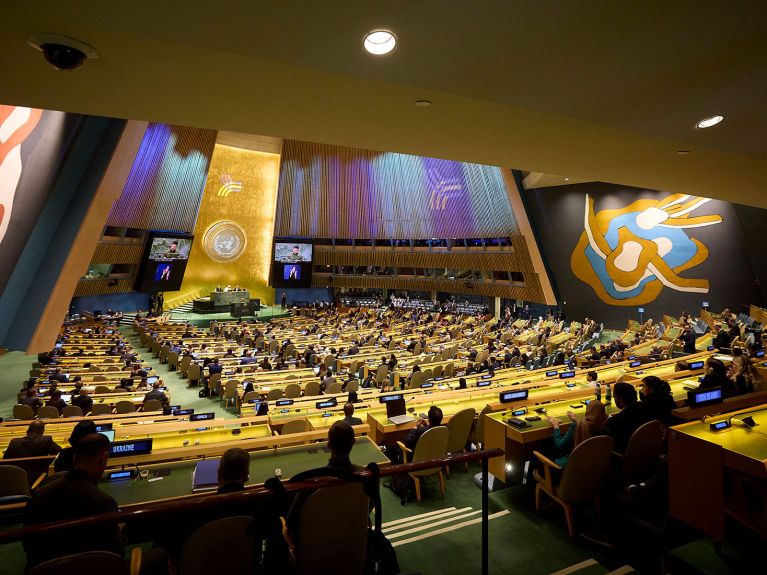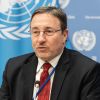Germany’s central role at the UN Summit of the Future
Together with Namibia, Germany is chairing the negotiations for the United Nations Summit of the Future in September 2024.

Crises, climate change, poverty and hunger - the world is facing multiple challenges. The United Nations already adopted guidelines to combat them back in 2015: 17 Sustainable Development Goals (SDGs). The UN “Summit of the Future” on 22 and 23 September 2024 is expected to come up with concrete responses to unresolved issues. One central role at the summit will be played by Germany, which together with Namibia is preparing for and will chair the negotiations.
What is the Summit of the Future?
The UN Summit of the Future scheduled to take place on 22 and 23 September 2024 is an important date within a years-long process. It began in 2020, when the United Nations celebrated its 75th anniversary. In the midst of the coronavirus pandemic, the member states turned to UN Secretary-General António Guterres. The heads of state and government asked him to “identify the gaps in the existing multilateral system and give recommendations for future solutions,” says the permanent representative of Germany to the United Nations in New York, Antje Leendertse.
Guterres responded by presenting “Our Common Agenda” in 2021, a wake-up call for the global community that places the emphasis on the 17 Sustainable Development Goals in particular. He also called for a Summit of the Future to be held.“Now the ball is back in the member states’ court to forge a common pact for the future by September 2024,” says Ambassador Leendertse.
Dieses YouTube-Video kann in einem neuen Tab abgespielt werden
YouTube öffnenThird party content
We use YouTube to embed content that may collect data about your activity. Please review the details and accept the service to see this content.
Open consent formGermany’s part in preparing the summit
Germany has actively prepared the Summit of the Future, playing an important role as a bridge-builder in the international community. The German government has rolled out initiatives to drive forward the discussion of key topics at the summit, including reformed multilateralism, strengthening of the global health architecture and the fight against climate change. A particular role is played by Germany’s engagement in the informal “Alliance for Multilateralism”, which aims to boost trust in multilateral institutions and seek joint solutions to global challenges. Namibia has especially championed the perspectives of the African nations in the summit’s agenda. As coordinator of the African Group in the UN, it has lobbied strongly on behalf of not only the African countries but the entire Global South. The cooperation between Germany and Namibia in preparing the summit also highlights the importance of trust-based partnerships in the international community when it comes to building a sustainable and fair future for everyone.



